April 18, 2025
Conferences
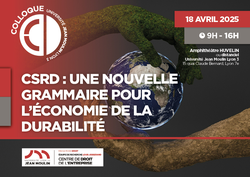
🌐suivre Marie-Anne Frison-Roche sur LinkedIn
🌐s'abonner à la Newsletter MAFR Regulation, Compliance, Law
🌐s'abonner à la Newsletter en vidéo MAFR Surplomb
____
► Référence complète : M.-A. Frison-Roche, "Appréhender la CSRD à travers sa ratio legis", synthèse de CSRD : une nouvelle grammaire pour l'économie de la durabilité, colloque organisé par le Centre de recherches Louis Josserand sous la direction de Luc-Marie Augagneur, Faculté de Droit, Université Jean Moulin - Lyon 3, 8 avril 2025,
____
Cette conférence constitue l'intervention de synthèse du colloque. C'est pourquoi elle a été construite à partir d'une méthode qui lui est propre à savoir la recherche et le respect de ce qui a justifié l'adoption de la CSRD, tout en s'appuyant sur chacun des propos qui ont été présentés lors de cette journée pour en rendre compte et les mettre en perspective de cette idée.
____
🧮consulter le programme complet de cette manifestation
____
🪑🪑🪑Participent notamment également à cette manifestation :
🪑Jean-Christophe Roda
🪑Luc-Marie Augagneur
🪑Gilles Martin
🪑Grégoire Leray
____
► Résumé de l'intervention :
________
Nov. 7, 2024
Thesaurus : Doctrine
► Référence complète : Th. Favario, "Le contenu du "rapport de durabilité"", JCP E, 7 nov. 2024, n° 45, doss. 1319, pp. 28-33
____
► Résumé de l'article (fait par l'auteur) : "Mesure emblématique de la directive du 14 décembre 2022 (directive CSRD) désormais transposée en droit interne, le « rapport de durabilité » complète l'information due par les sociétés les plus importantes. Tenues d'y rendre compte de la manière dont elles intègrent « les enjeux de durabilité », ce rapport impose en creux à ces sociétés de s'inscrire dans une dynamique de « durabilité » de nature à influer sur leur organisation et leur activité.".
____
🦉Cet article est accessible en texte intégral pour les personnes inscrites aux enseignements de la Professeure Marie-Anne Frison-Roche
________
July 4, 2024
Thesaurus : Doctrine
► Référence complète : S. Schiller, "La directive sur le devoir de vigilance. Appréciation du champ d’application, des obligations imposées et des sanctions au regard de la loi française", JCP E, n°27, 4 juillet 2024, étude 1207, pp. 16-26
____
► Résumé de l'article (fait par l'auteure) : "Après 3 années de débats, la directive sur le Devoir de vigilance des entreprises en matière de durabilité a été adoptée par les parlementaires européens le 24 avril 2024. Texte de compromis, il contient des avancées majeures vers plus de sécurité, de fraternité et d’égalité. Vu la richesse de ce texte, seuls quelques points seront abordés dans cette étude : tout d’abord les entreprises concernées, puis les obligations imposées et, enfin, les sanctions prévues. La mise en perspective avec la loi vigilance applicable depuis 7 ans permet de mesurer l’importance de ce nouveau texte, même si de nombreux points sont en sus- pens dans l’attente de la transposition.".
____
🦉Cet article est accessible en texte intégral pour les personnes inscrites aux enseignements de la Professeure Marie-Anne Frison-Roche
________
July 1, 2024
Thesaurus : Doctrine
► Référence complète : M. Tirel, "Publication de la directive CS3D : consécration du devoir de vigilance européen", Dr. sociétés, n°7, juillet 2024, comm. 101, pp. 37-40
____
► Résumé (fait par l'auteure) : "Objet. – Après son adoption définitive par le Parlement européen et le Conseil le 24 mai dernier (avec 17 votes pour et 10 abstentions), la directive sur le devoir de vigilance (Corporate sustainability due diligence directive, dite CS3D), a été publiée au JOUE le13 juin 2024.
Portée. – Tel que l'ambitionnait la Commission européenne, ce texte s'inspire de la loi française du 27 mars 2017 tout en remédiant à certaines de ses lacunes, bien que les ambitions premières que le texte portait ont été nettement revues à la baisse.".
____
🦉Cet article est accessible en texte intégral pour les personnes inscrites aux enseignements de la Professeure Marie-Anne Frison-Roche
________
June 13, 2024
Thesaurus : 06.1. Textes de l'Union Européenne
► Full Reference: Directive (EU) 2024/1760 of the European Parliament and of the Council of 13 June 2024 on corporate sustainability due diligence and amending Directive (EU) 2019/1937 and Regulation (EU) 2023/2859 (CS3D)
____
► read the text of the directive
____
📧see on LinkedIn the article published by Marie-Anne Frison-Roche in the Newsletter MAFR. Regulation, Compliance, Law, on the occasion of the publication of this directive in the Official Journal of the European Union
________
May 31, 2024
Thesaurus : 06.1. Textes de l'Union Européenne
► Référence complète : Directive (UE) 2024/1640 du Parlement européen et du Conseil du 31 mai 2024, relative aux mécanismes à mettre en place par les États membres pour prévenir l’utilisation du système financier aux fins du blanchiment de capitaux ou du financement du terrorisme, modifiant la directive (UE) 2019/1937, et modifiant et abrogeant la directive (UE) 2015/849.
____
________
May 31, 2024
Thesaurus : 06.1. Textes de l'Union Européenne
► Référence complète : Directive (EU) 2024/1640 of the European Parliament and of the Council of 31 May 2024 on the mechanisms to be put in place by Member States for the prevention of the use of the financial system for the purposes of money laundering or terrorist financing, amending Directive(EU) 2019/1937, and amending and repealing Directive (EU) 2015/849
____
________
May 27, 2024
Conferences
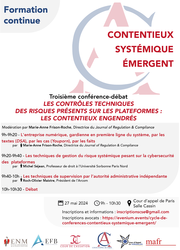
🌐suivre Marie-Anne Frison-Roche sur LinkedIn
🌐s'abonner à la Newsletter MAFR Regulation, Compliance, Law
____
► Référence complète : M.-A. Frison-Roche, "Un contentieux systémique in vivo : le cas dit des sites pornographiques", in Les contrôles techniques des risques présents sur les plateformes et les contentieux engendrés, in cycle de conférences-débats "Contentieux Systémique Émergent", organisé à l'initiative de la Cour d'appel de Paris, avec la Cour de cassation, la Cour d'appel de Versailles, l'École nationale de la magistrature (ENM) et l'École de formation des barreaux du ressort de la Cour d'appel de Paris (EFB), sous la responsabilité scientifique de Marie-Anne Frison-Roche, 27 mai 2024, 9h-10h30, Cour d'appel de Paris, salle Cassin
____
🧮consulter le programme complet de cette manifestation
____
🧮consulter le programme de l'ensemble du cycle Contentieux Systémique Émergent
____
🔲consulter les slides ayant servi de support à l'intervention
____
🌐consulter sur LinkedIn les slides ayant servi de support à l'intervention
____
🎤consulter une présentation de la seconde intervention de Marie-Anne Frison-Roche prononcée lors de cette conférence-débat : "Le contentieux Systémique Emergent du fait du système numérique"
____
____
____
► Résumé de cette conférence :
________
May 13, 2024
Thesaurus : Doctrine
► Référence complète : B. Lecourt, "Publication d'informations relatives à la durabilité : réforme d'ampleur avec la transposition de la directive "CSRD"", Rev. sociétés, chron., mai 2024, pp.342-348
____
► Résumé de l'article :
____
🦉Cet article est accessible en texte intégral pour les personnes inscrites aux enseignements de la Professeure Marie-Anne Frison-Roche
________
April 30, 2024
Interviews

🌐follow Marie-Anne Frison-Roche on LinkedIn
🌐subscribe to the Newsletter MAFR Regulation, Compliance, Law
____
► Full Reference: M.-A. Frison-Roche, "GPA : "Il faut cesser de passer la femme par pertes et profits"" ("Surrogacy: "We have to stop writing off women""), interview with Olivia Dufour, Actu-Juridique, April 30, 2024
____
💬read the interview (in French)
____
► Presentation of the interview by the journal: "Le 23 avril 2024, les députés européens ont adopté une loi élargissant le champ d’application des mesures actuelles pour combattre et prévenir la traite des êtres humains et mieux soutenir ses victimes, par 563 voix pour, 7 contre et 17 abstentions. La maternité de substitution, ou GPA, entre désormais dans le champ de la traite des êtres humains. Mais depuis quelques jours, la polémique fait rage. Le nouveau texte réprime-t-il uniquement la GPA contrainte organisée par une association criminelle, ou toute forme de GPA ? Nous avons demandé au professeur Marie-Anne Frison-Roche, auteur d’un ouvrage intitulé « GPA : dire Oui ou dire Non » publié chez Dalloz en 2018, de nous éclairer sur les enjeux attachés à cette question et sur la position de l’Europe.".
(Free translation: "On April 23, 2024, Members of the European Parliament adopted a law extending the scope of existing measures to combat and prevent human trafficking and provide better support for its victims, by 563 votes to 7 with 17 abstentions. Surrogacy (gestation pour autrui - GPA in French), now falls within the scope of human trafficking. But in recent days, controversy has been raging. Does the new text punish only forced surrogate motherhood organised by a criminal association, or all forms of surrogacy? We asked Professor Marie-Anne Frison-Roche, author of a book entitled "GPA: dire Oui ou dire Non" ("Surrogacy: say Yes or say No") published by Dalloz in 2018, to shed some light on the issues surrounding this question and on Europe's position".)
____
🕴️M.-A. Frison-Roche, 📕GPA : dire Oui ou dire Non (Surrogacy: say Yes or say No), 2018
____
► Questions asked, answers given:
Actu Juridique. Question : La GPA est une pratique ancienne même si elle est longtemps restée marginale, qu’est-ce qui a changé et nécessite aujourd’hui l’attention des pouvoirs publics et du législateur ?
Surrogacy is a long-standing practice, even if it was marginal for a long time. What has changed that now requires the attention of public authorities and legislators?
Marie-Anne Frison-Roche. Answer. : Two things have changed this practice. The first is the possibility of introducing a man's gametes and a woman's oocyte into a woman's body, thus reducing her to being a "carrier" and providing this service, which is very much in demand. The second is the transformation of the desire for a child, an eternal desire shared by many, into a "right to a child". This right to a child would need to be put into practice by any means, for the benefit of any holder who is unable or unwilling to suffer the inconvenience of pregnancy. This is how the practice developed. The legislator intervened, following case law, by declaring, as the Cour de cassation (French Court of cassation) had done, that this practice was contrary to the dignity of the human being, punishable under both the Code civil (French Civil Code) and the Code pénal (French Criminal Code).
A.J. Q. : Autrement dit, les innovations techniques couplées à l’émergence d’un sentiment de droit à l’enfant ont fait exploser la demande de maternité de substitution…
In other words, technical innovations coupled with the emergence of a sense of entitlement to a right to a child have led to an explosion in demand for surrogacy...
MaFR. A. : Yes, but this demand has to be matched by an offer. There are few fertile women prepared to bear children for others. The desire to have children is not matched by a desire to bear them for others without compensation. And the few women who are willing to do so are in countries far removed from the people who want them. The practice has only developed because of the very prosperous agencies on which everything depends. Without this intermediation, towards Ukraine for example, the practice could not have spread.
A.J. Q. : L’Europe avait-elle déjà pris position sur la GPA et si oui, par quels textes et dans quel sens ?
Has Europe already taken a position on surrogacy and, if so, in what texts and in what direction?
MaFR. A. : In Europe, it was the case law of the ECHR which in 2014 (Mennesson judgments) broke with French jurisprudence to impose that the filiation of a child born as a result of a surrogacy carried out abroad in a country where surrogacy is lawful can be established with regard to the father whose gametes had been used. All that remained was for the child to be adopted by the father's spouse. This did not change domestic legislation, but the way civil status works means that the prohibition can be rendered ineffective. But this meant saying Yes and No at the same time... The challenge was therefore to amend the texts, either to exclude surrogacy more strongly, or to admit it more openly.
A.J. Q. : Dans ce contexte, quelle nouveauté apporte le texte adopté par le Parlement européen le 23 avril dernier ?
Against this backdrop, what is new about the text adopted by the European Parliament on 23 April?
MaFR. A. : It depends on how you interpret it. When the text of the directive was being discussed, no one disputed that its adoption would result in the effective prohibition of surrogacy throughout the European Union and the strengthening of the basis of this prohibition in that surrogacy constitutes trafficking in human beings, the woman who carries the child and who legally remains the mother since she gives birth to the child, and that child. But once voted, the text gives rise to another interpretation, supported by some. It is argued that trafficking in human beings is not the "legal category" into which surrogacy falls, but the "condition" under which surrogacy is punishable; So, if surrogacy is practised without "trade" (trafficking is a trade), if there is no money involved, if there is only altruism and concern for the other person, then not only is surrogacy not punished, but what is more, this so-called "altruistic" surrogacy becomes legitimate by the very fact of this directive! The scope is therefore quite simply the opposite... This could give rise to litigation.
A.J. Q. : Dans l’ouvrage que vous avez consacré à la GPA en 2018 chez Lefebvre-Dalloz préfacé par Éliette Abécassis, vous montrez qu’on peut dire Oui ou Non à la GPA, mais qu’il faut répondre et surtout vous mettez en lumière les implications de ces choix. Pourquoi faut-il forcément répondre à cette question ?
In your book on GPA published by Lefebvre-Dalloz in 2018, with a preface by Éliette Abécassis, you show that we can say Yes or No to surrogacy, but that we must answer, and above all you highlight the implications of these choices. Why do we have to answer this question?
MaFR. A. : The question of whether or not to allow surrogacy must be answered (say Yes or say No), because it is a question of society. Not to answer it, to say neither yes nor no, to say yes and no at the same time, is not to choose the society in which we want to live.
A.J. Q. : Imaginons que l’on choisisse le Oui. Qu’implique-t-il sur les valeurs de la société et l’état du droit ?
What does this mean for the values of society and the Rule of Law?
MaFR. A. : If we accept that surrogacy is legal, then it is the will of the people involved that gives birth to the child. The agreement between the person or persons planning to have a child and the woman who agrees to carry the child, with the agent acting as intermediary. It is the society of the contract, because the State is nothing, it is only the scribe who copies the stipulations onto the civil status register. Parentage ceases to be the institution guarded by the State through which the individual is anchored in the social group. Parentage becomes a private matter. This contract-based society is in fact a market society.
A.J. Q. : Et si l’on dit Non à la GPA, on le fait sur quel fondement et pourquoi ?
And if we say No to GPA, on what grounds and why?
MaFR. A. : If we maintain the prohibition of surrogacy and seek to make it effective, in particular by taking action against agencies, we are referring to a society where the State, through public order, watches over human beings and where the law controls power and protects women.
________
April 25, 2024
Newsletter MAFR - Law, Compliance, Regulation
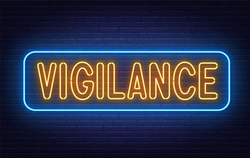
🌐follow Marie-Anne Frison-Roche on LinkedIn
🌐subscribe to the Newsletter MAFR Regulation, Compliance, Law
____
► Full Reference: M.-A. Frison-Roche, "La directive européenne sur le devoir de vigilance est votée. A juste titre, les contrats et le juge y ont la part belle" ("The European directive on duty of vigilance has been passed. Rightly so, contracts and the courts have a major role to play"), Newsletter MAFR Law, Compliance, Regulation, April 25, 2024
____
📧Read by freely subscribing other news of the Newsletter MAFR - Law, Compliance, Regulation
____
🧱Duty of vigilance directive leaves plenty of room for contracts, and therefore for the judge
On April 24, 2024, the European Parliament passed the Corporate Sustainability Due Diligences Directive (CS4D).
After many twists and turns, it is fairly close to the French “Vigilance” law of 2017.
____
April 24, 2024
Thesaurus : Doctrine
► Référence complète : A. Lecourt, "Transposition de la directive CSRD", RTD com., 2024, chron., pp.99-104
____
► Résumé de l'article :
____
🦉Cet article est accessible en texte intégral pour les personnes inscrites aux enseignements de la Professeure Marie-Anne Frison-Roche
________
April 2, 2024
Conferences

🌐follow Marie-Anne Frison-Roche on LinkedIn
🌐subscribe to the Newsletter MAFR Regulation, Compliance, Law
____
► Full Reference: M.-A. Frison-Roche, "Les voies d'innovations juridiques face aux nouveaux "défis climatiques" ("Innovative legal solutions to the new "climate challenges""), in C. Arnaud, O. de Bandt et B. Deffains (dir.), Nouveaux défis - Regards croisés : Droit, Économie et Finance. Quel Droit face au Changement Climatique ? (("New challenges - Crossed perspectives : Law, Economics and Finance. What Law in the Face of Climate Change?"), Banque de France (French Central Bank) and CRED/Paris Panthéon-Assas University, Paris, Centre de Conférence de la Banque de France, April 2, 2024
____
🧮See the full programme of this event
____
🔲see the slides, basis of this conference (in French)
____
► Summary of this conference: In response to the question of how the Law can produce 'innovations' to meet the 'climate challenges', the process is based on the three traditional sources of Law, which are, firstly, laws and regulations, secondly, the commitments of individuals, mainly contracts, and thirdly, court rulings.
At first sight, the Law in its traditional conception and practice is weak in the face of climate change. This weakness is inherent in the nature of climate change, which is at once future, global and systemic, in the face of these three sources of Law, which do not address all three dimensions at once. The scale of the legal innovation required to ensure that one or more articulated sources can grasp the future, the global and the systemic is therefore clear. And yet this is what is happening.
As far as laws and regulations are concerned, they do not seem very appropriate because they are, by their very nature, a territorial limit, and international treaties are very difficult to negotiate. The interweaving of European regulations, for example the CSRD and the CS3D, which mirror each other, may be more effective. As far as 'commitments' are concerned, a concept which in Law is not very precise outside of contracts and liability cases📎
But a major change has occurred with the emergence of a new branch of law: the Compliance Law, a teleological branch of Law whose legal normativity is lodged in the Monumental Goals📎
In this global, systemic, extraterritorial perspective, the object of which is the future - Compliance Law is, moreover, rejected by many legal experts - the legislative innovation is major. Indeed, the law of 23 March 2017, known as "Vigilance" designated large companies, because they are "powerful", because they are "in a position to act" to "detect and prevent" breaches of the environment and human rights. The 2017 law copied the "compliance tools"📎
Only large companies are subject to the Compliance Law, notably the Vigilance Law, since they are the only ones in a position to act, in this case "parent companies or principals", and borders are no longer limits since the obligation, creating personal liability for the company📎
On the second point, that of commitments, we are only at the beginning. Judges do not transform ethical statements into "unilateral legal commitments", and vigilance does not transform company law into co-management. But contracts do form a global network through which companies adjust their various legal obligations. This is why arbitrators, the only "global judges", will soon be involved in this systemic litigation📎
But the most innovative aspect undoubtedly comes from the courts. Perhaps and notably in France because it is from where we least expect it, the civil courts, that the imagination comes, but also the guarding of the great principles of the Rule of Law, because for the moment the case law is reasonable. This innovation has not come about proprio motu: the judges are not taking action, it is the NGOs that are conducting a kind of litigation policy, systematically giving formal notice to the major energy companies, but also to the major banks and insurers on climate issues, alleging non-compliance with their vigilance plans. The interim relief judge at the Paris Court of First Instance must then provide answers in systemic disputes, of which the so-called "Total Uganda"📎
The courts are demonstrating a great deal of innovation. The Court of First Instance's interim relief judge has appointed amici curiae📎
In conclusion, Law is in the process of being rebuilt through a new branch of Law, Compliance Law, whose the very purpose, as an extension of and going beyond Regulatory Law📎
________
🕴️M.-A. Frison-Roche, 📝What a commitment is, in 🕴️M.-A. Frison-Roche (ed.), 📘Compliance Obligation, 2024.
🕴️M.-A. Frison-Roche, 📝Compliance Monumental Goals, beating heart of Compliance Law, in 🕴️M.-A. Frison-Roche (ed.), 📘Compliance Monumental Goals, 2023.
🕴️M.-A. Frison-Roche (ed.), 📘Compliance Tools, 2021.
🕴️M.-A. Frison-Roche (ed.), 📘Compliance Obligation, 2024, of which a chapter is dedicated to "International Arbitration in support of the Compliance Obligation".
🕴️M.-A. Frison-Roche, 🚧Compliance contract, compliance clauses, 2022 ; 🕴️M.-A. Frison-Roche (ed.), 📘Contrat and Contract, 2024.
🕴️N. Cayrol, 📝L'amicus curiae, mesure d'instruction ordinaire, 2022.
On the creation on the new 5-12 Chamber, Contentieux émergent – Devoir de vigilance et responsabilité écologique see 🕴️J. Boulard, 💬Contentieux systémique : "Il est important, pour les magistrats, de rester au plus près des réalités" (Systemic litigation: "It is important for judges to remain as close as possible to reality"), March 28, 2024.
🕴️M.-A. Frison-Roche, 💬"Nous voyons émerger aujourd’hui le contentieux systémique" ("We are now seeing the emergence of the Systemic Litigation"), March 28, 2024 ; 🕴️M.-A. Frison-Roche, Coordination and animation of cycle of conference-debates 🧮Contentieux Systémique Émergent (Emerging Systemic Litigation).
🏛️Conseil d'État (French Council of State) and 🏛️Cour de cassation (French Court of cassation), 📗De la régulation à la compliance : quel rôle pour le juge ? (From Regulation to Compliance: what role for the Judge?), 2024; 🕴️M.-A. Frison-Roche, 🚧The deployment of Regulatory Law through Compliance Law in the European project, 2023 ; 🚧Compliance Law loses the ties of Regulation Law but retains its principles : consequences for companies, 2018 ; 🚧From Regulation Law to Compliance Law, 2017.
🕴️M.-A. Frison-Roche, 📝Le rôle du juge dans le déploiement du droit de la régulation par le droit de la compliance et ;🕴️Fr. Ancel, 📝Quel rôle pour le juge aujourd’hui dans la compliance ? Quel office processuel du juge dans la compliance ?, in 🏛️Conseil d'État et 🏛️Cour de cassation, 📗De la régulation à la compliance : quel rôle pour le juge ?, 2024 ; 🕴️Fr. Ancel, 📝Le principe processuel de compliance, un nouveau principe directeur du procès ?, in M.-A. Frison-Roche (dir.), 📕La juridictionnalisation de la Compliance, 2023 ; 🕴️M.-A. Frison-Roche, 📝Le Juge requis pour une Obligation de Compliance effective, in 🕴️M.-A. Frison-Roche (dir.), 📕L'Obligation de Compliance, 2024.
Sept. 28, 2023
Conferences
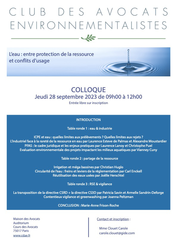
♾️follow Marie-Anne Frison-Roche on LinkedIn
♾️subscribe to the Newsletter MAFR Regulation, Compliance, Law
____
► Full Reference: M.-A. Frison-Roche, "Conclusion", in Club des avocats environnementalistes, L’eau : entre protection de la ressource et conflits d’usage, Maison des Avocats, Auditorium, September 28, 2023.
____
🧮see the full programme of this event
________
July 13, 2023
Thesaurus : Doctrine
► Référence complète : N. Ida, "Contrat et devoir de vigilance des sociétés", JCP E, n° 28, 13 juillet 2023, pp.17-26.
____
► Résumé de l'article (fait par l'auteur) : "Le contrat constitue l’instrument indispensable de déploiement de la vigilance sociale et environnementale dans les « chaînes de valeur » des sociétés donneuses d’ordre. Pourtant, la loi n° 2017-399 du 27 mars 2017 sur le devoir de vigilance des sociétés mères et entreprises donneuses d’ordre n'évoque pas le contrat, dont les liens avec le devoir de vigilance ont en conséquence été peu étudiés. Ce silence étonne car les sociétés concernées ne peuvent exercer leur devoir légal qu’en devenant créancières d’obligations de vigilance au moyen de clauses insérées dans leurs contrats commerciaux. Cette vigilance contractuelle imposée par la loi et bientôt par la directive européenne en cours d’adoption ne pourra atteindre son but qu’à la condition d’adapter les clauses de vigilance aux spécificités des relations contractuelles entretenues avec les fournisseurs et sous-traitants des sociétés donneuses d’ordre.".
____
🦉Cet article est accessible en texte intégral pour les personnes inscrites aux enseignements de la Professeure Marie-Anne Frison-Roche
________
July 10, 2023
Hearings by a Committee or Public organisation
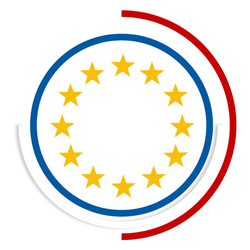
🌐suivre Marie-Anne Frison-Roche sur LinkedIn
🌐s'abonner à la Newsletter MAFR Regulation, Compliance, Law
____
► Référence complète : M.-A. Frison-Roche, audition par les rapporteures de la Commission des affaires européennes de l'Assemblée Nationale, Sophia Chikirou et Mireille Clapot dans le cadre de l'élaboration du Rapport sur devoir de vigilance des entreprises, 7 juin 2023.
____
Ce résumé a été publié après la publication du rapport parlementaire, pour ne pas gêner l'élaboration de celui-ci.
► Résumé de l'audition : À la demande des députées, il n'y a pas eu de présentation ex cathedra mais plutôt une discussion à partir de questions posées par celles-ci.
La première demande faite par Sophia Chikirou a été de formuler une définition de ce qu'est la "Régulation", puisque j'ai été présentée au début de l'audition comme ayant eu un rôle déterminant dans l'élaboration du Droit de la Régulation.
J'ai donc expliqué à la fois la façon dont les régulations peuvent être d'origines techniques ou politiques (souvent un mixte des deux), la place corrélative de l'Etat, l'évolution de cela depuis 20 ans, la constance du Droit de la Régulation au-delà de la diversité des secteurs et des sensibilités politiques des Gouvernements successifs, et l'importance du projet Européen.
J'ai montré que le Droit de la Régulation est par nature Ex Ante, porte sur l'avenir qu'il construit, demeure pour maintenir un équilibre par nature instable, l'Autorité de régulation n'étant que l'indice du Droit de la Régulation et non pas sa source.
Puis j'ai montré que la Compliance, dont la Vigilance est la pointe avancée, est le prolongement du Droit de la Régulation, le Droit de la Compliance ayant la même logique Ex Ante, trouvant sa normativité dans les buts poursuivis. Mais elle déploie le Droit de la Régulation et en démultiplie l'ambition puisqu'elle charge les entreprises de concrétiser ses buts, qu'elles le veuillent (RSE) ou qu'elles ne le veuillent pas (par exemple Sapin 2) avec une portée naturellement extraterritoriale. En cela le Droit de la Compliance est tout à fait ancré, ancré dans le Droit de la Régulation, et constitue une sorte de Révolution, dont la loi de 2017, dite "loi Vigilance", est la plus perceptible manifestation.
C'est ainsi opérée le passage du Droit de la Régulation au Droit de la Compliance, lequel a transformé les Autorités de Régulation, qui construisent, surveillent et maintiennent en équilibre les structures des secteurs en Autorités de Supervision, car la Supervision porte techniquement sur les opérateurs (ce que font les contrôles mis en place par la Vigilance) et non sur les structures, lesquelles sont prises en charge par les opérateurs (par exemple dans les chaines de valeur).
Cela explique que techniquement le Droit de la Vigilance emprunte au Droit de la Régulation et de la Supervision bancaire, car le secteur bancaire gère les risques systèmiques par la solidité et la puissance des acteurs bancaires et les outils sont les mêmes.
On se rend compte aujourd'hui de cette logique systémique de la Vigilance mais cela était déjà visible dès 2016📎
La deuxième demande faite par Sophia Chikirou a porté sur le sens du projet de directive, notamment ses enjeux et son effectivité au regard de ces explications, apparaissant comme nouvelles et éclairantes.
J'ai montré que ce texte est effectivement important et doit être compris comme l'expression politique d'une Europe qui a une sorte de "plan". Ainsi la CS3D doit se comprendre comme le texte gémellaire de la CSRD. De la même façon la loi de 2017 doit se comprendre au regard de ce plan européen. Lequel doit embrasser le DMA et le DSA. Tout cela est du Droit de la Compliance, dont la Vigilance est, et dès la loi de 2017, la "pointe avancée".
Tout le sens, et c'est le même dans tous les textes, est dans les buts. Ce sont des buts systémiques, qui portent sur le futur : éviter dans le futur une catastrophique, faire en sorte par une action présente qu'elle n'arrive pas (but "négatif"), ou (si l'on est encore plus ambitieux) faire en sorte que quelque chose arrive (but "positif") : équilibre climatique, respect d'autrui, égalité effective, probité, dignité, comme principes de fonctionnement des systèmes.
Pour cela, et pragmatiquement puisqu'il s'agit d'obtenir de l'effectivité, l'on repère les organisations qui peuvent réaliser cela : les entreprises. Plus elles sont puissantes et plus cela est possible. La puissance des entreprises n'est pas seulement bienvenue : elle est nécessaire. Le Droit de la Compliance constitue donc, et les textes qui l'expriment, une alliance entre l'Etat et les entreprises, et non pas une défaite de l'Etat (puisqu'il est plus ambitieux que jamais), la puissance des entreprises étant recherchée et devant s'exprimer.
Plus précisément, il s'agit (trilogie essentielle en Droit de la Compliance) d'obtenir l'effectivité, l'efficacité et l'efficience des textes. J'ai expliqué la définition de ces trois notions et leur articulation en pratique, notamment sur le terrain probatoire.
La troisième demande faite par Mireille Clapot a porté sur la présentation faite par moi de la logique préventive du système de Compliance, de Vigilance et notamment dans la loi de 2017, mais elle observe que le centre du dispositif est bien la réparation du dommage et non la prévention.
Effectivement, j'ai donc développé cette question essentielle de l'Ex Ante et de l'Ex Post, pour montrer que les débats avaient lieu à juste titre car le fonctionnement du dispositif n'étaient pas encore fixés par la jurisprudence. Mais si le Droit de la Régulation est bien de l'Ex Ante, le Droit de la Compliance, puisqu'il est entré dans l'entreprise même et dans des supervision, est davantage dans un continuum entre l'avant et l'après : ainsi une notion-clé est la "durabilité" (dans le titre même de la directive) et sous la "responsabilité" ce que l'on demande à l'entreprise c'est avant tout de rendre des comptes de l'usage qu'elle a fait de sa puissance (accountability), mais de sauver le monde (puisqu'à l'impossible nul n'est tenu). Si le dommage est survenu, sa responsabilité est acquise, mais l'enjeu central est de prévenir la survenance d'un dommage systémique, autant que faire se peut, voire d'améliorer les systèmes.
La quatrième demande, faite par Sophia Chikirou a porté sur la mise en place par chaque Etat-membre d'une autorité de régulation.
J'ai souligné la différence entre une Autorité de Régulation et, ce dont il s'agit ici, d'une Autorité de Supervision, la mission dont il s'agit ici étant de superviser les entreprises en charge du devoir de vigilance.
Dans son état actuel le texte ne précise pas la forme juridique institutionnelle que devrait prendre l'organe en charge de cette supervision. La difficulté technique vient du fait qu'il ne s'agit pas d'un secteur et qu'il est difficile de construire un "régulateur sans secteur" ou un superviseur ayant grand pouvoir sur ce qui n'est pas un secteur, sauf à faire autant d'Autorités qu'il y a d'industries concernées, ce qui produirait une myriade d'institutions... C''est sans doute techniquement le sujet le plus difficile dans la transposition, l'exemple allemande pouvant aider le Législateur français.
La cinquième demande faite par les deux députées porte sur la façon dont les entreprises peuvent assumer de telles obligations engendrées par ces textes, certains affirmant que cela est impossible.
J'ai expliqué que pour ma part il faut raison garder et que ce sont les juges qui sont gardiens de cela. Les entreprises ne peuvent pas sauver le monde, mais ce n'est pas ce que les textes leur demande et ce serait méconnaitre l'esprit des textes que d'affirmer cela.
Les entreprises ne sont assujetties au devoir de vigilance qu'en raison de leur aptitude à agir (détecter, prévenir, éduquer, ajuster les comportements, etc.), c'est-à-dire parce qu'elles "sont en position", non pas parce qu'elles seraient déjà "coupables". C'est un contresens que de dire cela.
C'est une chance pour l'Etat d'avoir sous sa main des entités qui ont la puissance de porter ses ambitions et c'est aussi pour cela qu'il faut absolument que le Droit de la Compliance, dont la Vigilance fait partie, soit de portée extraterritoriale, pour qu'il n'y ait pas d'effet d'aubaine.
L'entreprise fait ensuite ce qu'elle peut. Elle doit donner à voir ce qu'elle fait, dire ce qu'elle fera, le dire aux personnes concernées et au juge qui sera éventuellement saisi, l'exprimer au regard des buts monumentaux (changer le futur...) négatifs et positifs qui donne sens à tout le système : tout cela mais pas plus que cela.
La sixième demande faite par Mireille Clapot a porté sur l'impact négatif que la loi de 2017, puis potentiellement la Directive, peuvent avoir sur des contrats, notamment internationaux, conclus par des entreprises français.
J'ai tout à fait souligné comme elle le caractère essentiel de cette analyse économique du Droit. C'est pour cela d'une part que dans les contrats les entreprises soient incitées à insérer des "clauses de compliance", dont les "clauses de vigilance" font partie (notion que j'ai proposée), que les juges interprètent et appliquent celles-ci en articulant Droit des contrats et Droit de la compliance, et que leur portée à la fois sur les tiers et sur d'autres territoires soient reconnues.
En effet le Droit de la Compliance, dont la Vigilance est la pointe avancée, est une façon d'humaniser l'économie et non de remettre en cause le principe de liberté qui doit continuer à animer celle-ci. Le contrat est un outil essentiel de détecter et de prévenir et les entreprises doivent pouvoir l'utiliser librement. J'ai développé sur ce point le rôle que le juge, y compris le juge de droit commun, va jouer.
____
► Voir dans mes travaux ceux qui peuvent présenter un intérêt au regard de cette discussion menée par les deux Rapporteures⤵️
🕴️M.-A. Frison-Roche, 🎤Le rôle du Juge dans le déploiement du Droit de la Régulation en Droit de la Compliance, et le document de travail sous-jacent : juin 2023.
🕴️M.-A. Frison-Roche, 🚧La vigilance, pièce d'un puzzle européen, mars 2023.
🕴️M.-A. Frison-Roche, 🚧Penser et manier la Vigilance par ses Buts Monumentaux de Compliance, mars 2023.
🕴️M.-A. Frison-Roche, 📝Contrat de compliance, clauses de compliance, mars 2022.
🕴️M.-A. Frison-Roche, 🚧L'invention de la vigilance : un terme nouveau pour une Responsabilité en Ex Ante, février 2021.
🕴️M.-A. Frison-Roche, 📝Le Droit de la compliance, 2016.
____
►lire le rapport parlementaire
________
🕴️M.-A. Frison-Roche, 🚧Compliance Law, 2016.
July 10, 2023
Thesaurus : Doctrine
► Référence complète : R. Maurel, « Directive vigilance des entreprises en matière de durabilité. À propos de la proposition ambitieuse du Parlement européen », JCP G, n° 27, 10 juillet 2023, pp. 1304-1306.
____
► Résumé de l'article :
____
🦉Cet article est accessible en texte intégral pour les personnes inscrites aux enseignements de la Professeure Marie-Anne Frison-Roche
________
June 28, 2023
Thesaurus : Soft Law
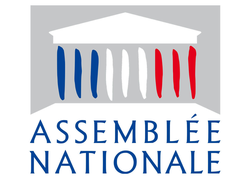
► Référence complète : Assemblée Nationale, Rapport d'information sur le devoir de vigilance des entreprises en matière de durabilité, déposé par la Commission des affaires européennes, présenté par Madame la députée Sophia Chikirou et Madame la députée Mireille Clapot, 28 juin 2023.
____
________
June 14, 2023
Conferences
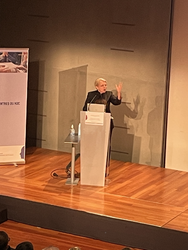
🌐follow Marie-Anne Frison-Roche on LinkedIn
🌐subscribe to the Newsletter MAFR Regulation, Compliance, Law
____
► Full Reference: M.-A. Frison-Roche, "L'esprit des Lois en matière de vigilance" ("Spirit of Law in Vigilance (Due Diligences) matters"), in Haut Conseil du Commissariat aux Comptes (H3C), Réalités et défis de la CSRD - Perspectives du devoir de vigilance, Paris, 14 June 2023.
____
🎥watch the video of a part of the speech (in French)
____
🧱read the description of the speeches of other speakers of this panel (in French)
____
The speech took place during the third-round table devoted to the Perspectives du devoir de vigilance (Perspectives of the duty of vigilance), the first round table having been devoted to the lessons that the DPEF can provide for the CSRD, and the second to the transposition work of the CSRD.
🧮See the full programme of this annual event (in French)
____
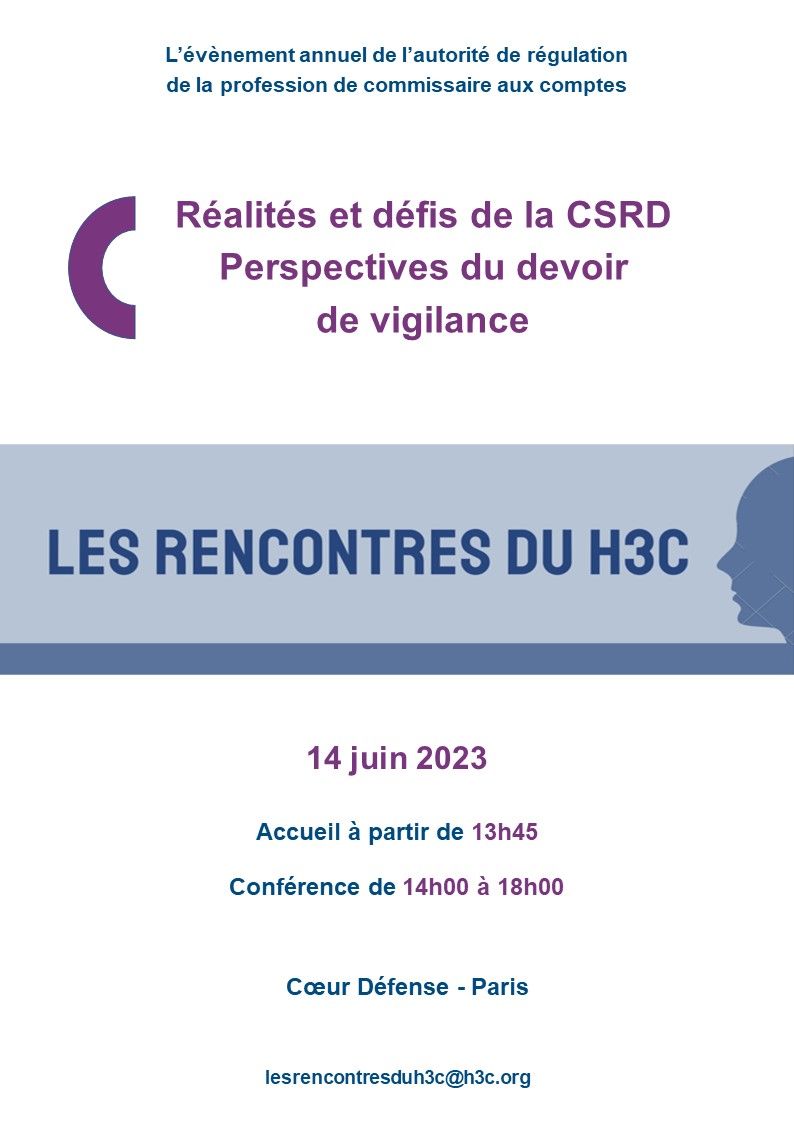
► English summary of the speech: In consideration of and in addition to what has been said, explained and even affirmed by other speakers, I have emphasised that 'vigilance" laws is not a 'regulation' like any other, but the leading edge of a very vast movement, Compliance Law, in which the 2017 French law is the driving force. For its application, the Judge, who is at the centre because of the will of the Legislator, is already taking into consideration the CS3D, the twin text of the CSRD.
The texts must not be seen in isolation. If we isolate them from each other, they become almost incomprehensible, their meaning appearing uncertain, even threatening: we need to understand the spirit of these texts, which are indeed new, because they aim to provide answers to the new world we have entered. We must all rejoice in this political ambition, which is taking a legal form, and work to make it efficient: Legislators, companies, auditors, Regulators and Judges.
If we do not stop at the letter, which would be to reduce Compliance to conformity, whereas Compliance Law, particularly Vigilance, is the extension of Regulation, finds its meaning in the Goals, we see that the French law of 2017, known as the "Vigilance law", which copies all the techniques of the French law known as "Sapin 2", gives goals simple to understand to the companies subject to the Legislator's will: detect and prevent environmental and human rights abuses in the value chains.
The logic is therefore Ex-Ante.
This Ex-Ante logic is retained by the CS3D directive.
The Judge is central to it. But the responsibility which the NGOs will ask him to trigger is itself an "Ex Ante responsibility", the Compliance trials being like "accountability" trials, to ensure that companies act in accordance with the Goals set by the Legislator.
This is transforming the role of the Judge, who must find effective solutions for the future. The discussion and the adversarial principle will become more important. Mediation will be encouraged. Stakeholders and the company will have to work together, and this method, which was intended by the Legislator for drawing up the vigilance plan, will be continued in the supporting legal proceedings.
This will also transform the company, and the role played by those who accredit the information on the company's actions and long-term strategies: auditors therefore have a central role to play.
________
May 25, 2023
Conferences
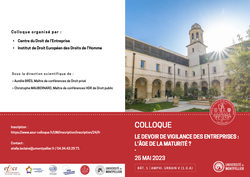
♾️ flollow Marie-Anne Frison-Roche on LinkedIn
♾️subscribe to the Newsletter MAFR Regulation, Compliance, Law
____
► Full Reference: M.-A. Frison-Roche, "Conclusions", in Ch. Maubernard et A. Brès (dir.), Institut de droit européen des droits de l'homme et Centre de droit de l'entreprise, Université de Montpellier, Le devoir de vigilance des entreprises : l'âge de la maturité?("The Entreprises duty of vigilance: the maturity age?") , Montpellier, May 25, 2023.
The conference is held in French.
____
🧮see the manifestation programme (in French)
___
🌐 read the report done on LinkedIn (in French)
___
► English summary of this final speech of the manifestation: It is rather difficult to draw a conclusion after listening so many contributions. For three reasons: firstly, because of their richness and extreme diversity; secondly, because of the fact that we do not know whether the duty of vigilance is under the French law of 2017 (known as the Vigilance Law) or in other national, European and international texts or beyond or below the legal rules; thirdly, because we do not know what is meant by the "maturity" of a legal concept. But in the end, since the question posed by the title itself of the colloquium is Duty of Vigilance: the age of maturity? the answer is clearly: no.
But this is regrettable. It is therefore essential to explore the ways in which the duty of vigilance can mature. If we find merit in this duty which has now entered the legal system, there are eight intersecting avenues, which must be exploited.
The first path is progression through the passage of time, rediscovering what in the past was already vigilance and what in the future will be its deployment.
The second way is to progress by fixing the vocabulary, because we are witnessing a great battle of words, overtly or covertly, in French or English.
The third path is progression through the emergence of principles, or even a principle, rediscovered or invented.
The fourth path is progression through coherence brought to the legal system(s), which at present suffer from gaps and inconsistencies, which could be remedied by methods such as centralising litigation or, more radically, ignoring borders.
The fifth path is progression through the fact that it works, because vigilance techniques are those of Compliance, of which vigilance is the leading edge, and the challenge is to find solutions.
The sixth path is progression through using power of the legal system not only to create new areas of relevance - starting with the notion of vigilance, but also that of the value chain - but also to impose new indifferences, namely indifference to the figure of the market (to which laws prefer the company and the value chain) and indifference to borders.
The seventh path is progression through bringing perspectives closer together, in order to find solutions even when interests are opposed. This is where the two techniques of contract and mediation are very welcome.
The eighth path is progression through culture, because the culture of vigilance, like the culture of compliance, must be developed within companies and supply chains, and must become common to them and their stakeholders.
____
________
May 8, 2023
Thesaurus : Soft Law
► Full Reference: Committee on Legal Affairs of the European Parliament, Report on the proposal for a directive of the European Parliament and of the Council on Corporate Sustainability Due Diligence and amending Directive (EU) 2019/1937, 8 May 2023.
____
________
Dec. 14, 2022
Thesaurus : 06.1. Textes de l'Union Européenne
► Full reference: Directive (EU) 2022/2464 of the European Parliament and of the Council, of 14 december 2022, amending Regulation (EU) n° 537/2014, Directive 2004/109/EC, Directive 2006/43/EC and Directive 2013/34/EU, as regards corporate sustainability reporting (called "CSRD" (Corporate Sustainability Reporting Directive)).
____
________
Nov. 7, 2022
Thesaurus : Doctrine
► Référence complète : B. Lecourt, "La "directive RSE 2" ("directive CSRD") : le nouveau visage de l'information en matière environnementale et sociale", Rev. sociétés, novembre 2022, chron., pp.639-644
____
► Résumé de l'article :
____
🦉Cet article est accessible en texte intégral pour les personnes inscrites aux enseignements de la Professeure Marie-Anne Frison-Roche
________
Sept. 7, 2022
Thesaurus : Doctrine
► Référence complète : G. Lhuilier, "La proposition de directive européenne sur le devoir de vigilance des entreprises en matière de durabilité", RDAI/IBLJ, n°5, 2022, p. 423-452.
____
► Résumé de l'article :
________
July 6, 2022
Thesaurus : Doctrine
► Full Reference: A. Danis-Fatome, "The proposal for a European Directive on the duty of vigilance: brief views on civil liability", International Business Law Journal, 5, 2022, p. 489-497.
____
► Summary of the article (done by the Journal of Regulation & Compliance):
________